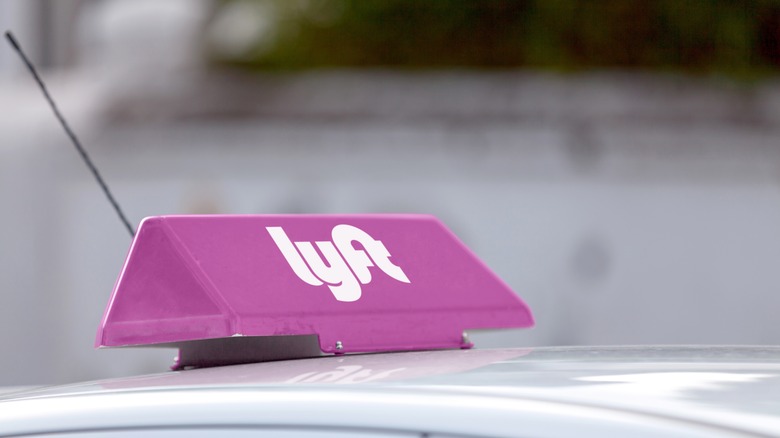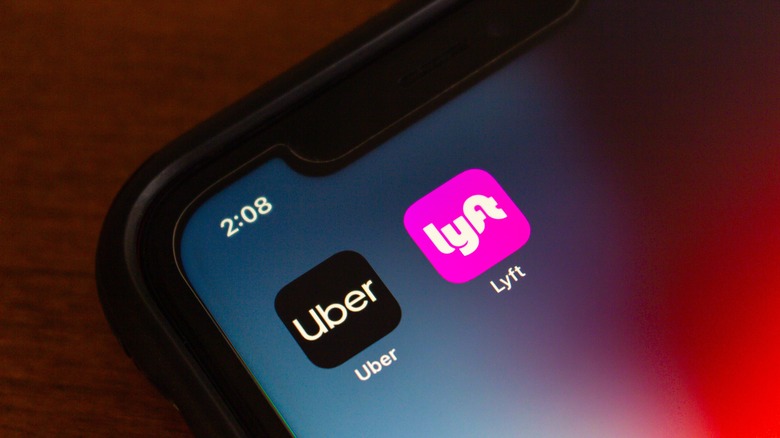Will Driving For Uber Or Lyft Void Your Car's Warranty? What You Should Know
There is no dearth of folks who use their car sparingly and often lease it for ridesharing services such as Uber or Lyft. A sizeable number also includes folks who only partake in it as a side hustle to make some extra cash. However, there is always the question of warranties, considering the car is being used for commercial purposes. So, does driving for Uber and Lyft void a car's warranty? Well, the answer is complicated, and depending on the car brand, it can be yes, or no. It varies based on the car brand, the dealership status, the insurance provider, and even the protections afforded by local laws.
Take a look at the terms and conditions of Hyundai's comprehensive extended warranty package. It clearly mentions that the package doesn't cover damage or failure on a vehicle if it originates from "transport for hire of persons or goods, taxi service or short or long term self-drive hire or driving school or any commercial use." So, there you have it. Hyundai clearly prohibits the commercial use of its cars.
MG, on the other hand, takes a slightly different approach. It offers a warranty worth 7 years covering unlimited kilometers on cars geared for personal use. MG's warranty explicitly allows commercial use of the car without voiding the warranty but reduces the distance driven to 150,000 kilometers. The agreement covers "rental purpose, taxi, courier vehicle, driving school vehicle, hire car or bus and tour vehicle."
What do carmakers think?
Now, the situation with warranties gets a bit confusing depending on the distance driven for a car. Take Tesla, for example. "Driving for business or commercial purposes, including, but not limited to, taxi, livery, or ride-sharing purposes, rental services, delivery services, law enforcement or emergency services," Tesla once cited as a warranty limitation. That ban on commercial use is no longer in place, as per the updated "New Vehicle Limited Warranty" terms covering the Model 3, S, X, and Y, which came into effect in July this year.
The situation for the Cybertruck is slightly different, specifically for a situation where a warranty dispute comes into the picture. Tesla's terms for its electric truck mentions that the National Center for Dispute Settlement (NCDS) will not "arbitrate claims involving a vehicle used primarily for commercial purposes unless the "Lemon Law" of your state covers it." Now, there's a rather obvious side to the debate, as well.
Tesla's Basic Vehicle Limited Warranty offers coverage worth 4 years or slightly under 50,000 miles driven, while the warranty on battery reaches 8 years of coverage or a minimum distance of just under 100,000 miles. Now, those distance figures are calculated based on an average person's regular commute behavior. If you are driving a Tesla for Uber or Lyft, that distance milestone will arrive pretty soon. "The average rideshare driver drives 140 to 200 miles per day, while the average American only clocks approximately 35," says Lyft. But at the end of the day, you should actively check with the carmaker for the fine details on their warranty terms pertaining to non-personal usage.
What are your options?
So, let's say you are driving for Uber. The company partners with insurance companies and maintains auto insurance on behalf of the driver-partner, worth up to a million dollars in third-party liability coverage. But do keep in mind that the insurance applies based on the driver's duty status. If you are off duty, all you have to rely on is your personal auto insurance. "Insurance that covers the cost to repair your car, up to the actual cash value, with a $2,500 deductible, contingent on your personal insurance including comprehensive and collision coverage," notes Uber for situations where the driver is en route on a trip. Lyft's insurance terms are also similar to Uber's.
The best route forward for any person willing to drive for Uber or Lyft, in a part-time or full-time capacity, is to comprehensively go through the warranty terms for their car purchase. And specifically, look for clauses that cover professional or commercial use of the car. It is pretty obvious from the general wear and tear status of a car — and, of course, the miles driven — that a vehicle has been used for commercial services. Based on forum posts, people have had mixed success with insurance providers and carmakers honoring their warranty terms for cars used for commercial services. Another option is to look for third parties that provide protection plans tailor-made for ride-sharing vehicles.


